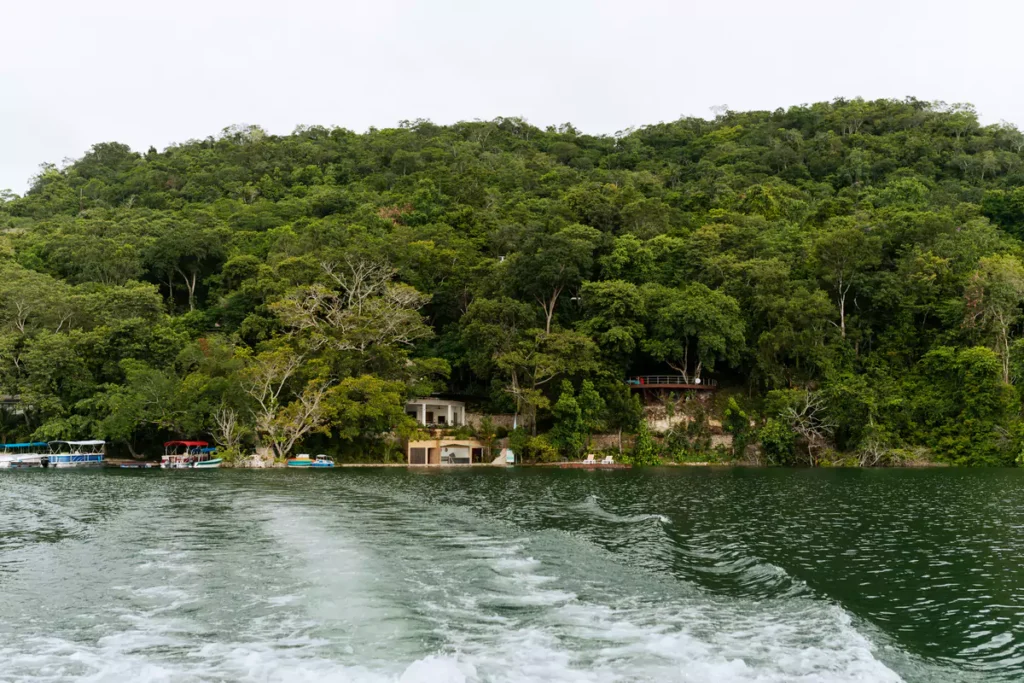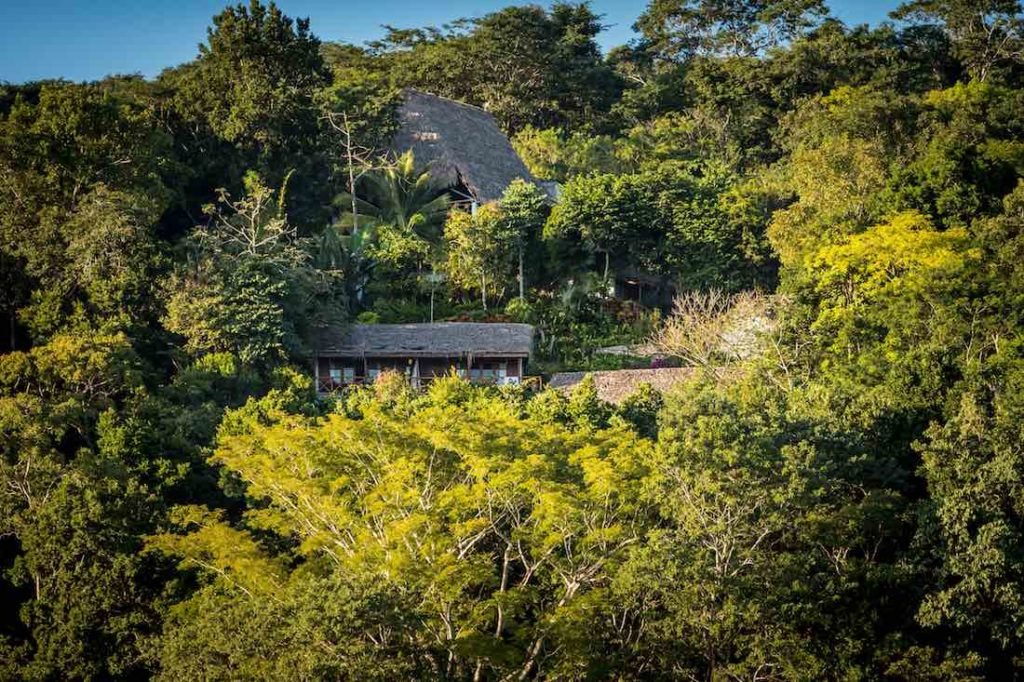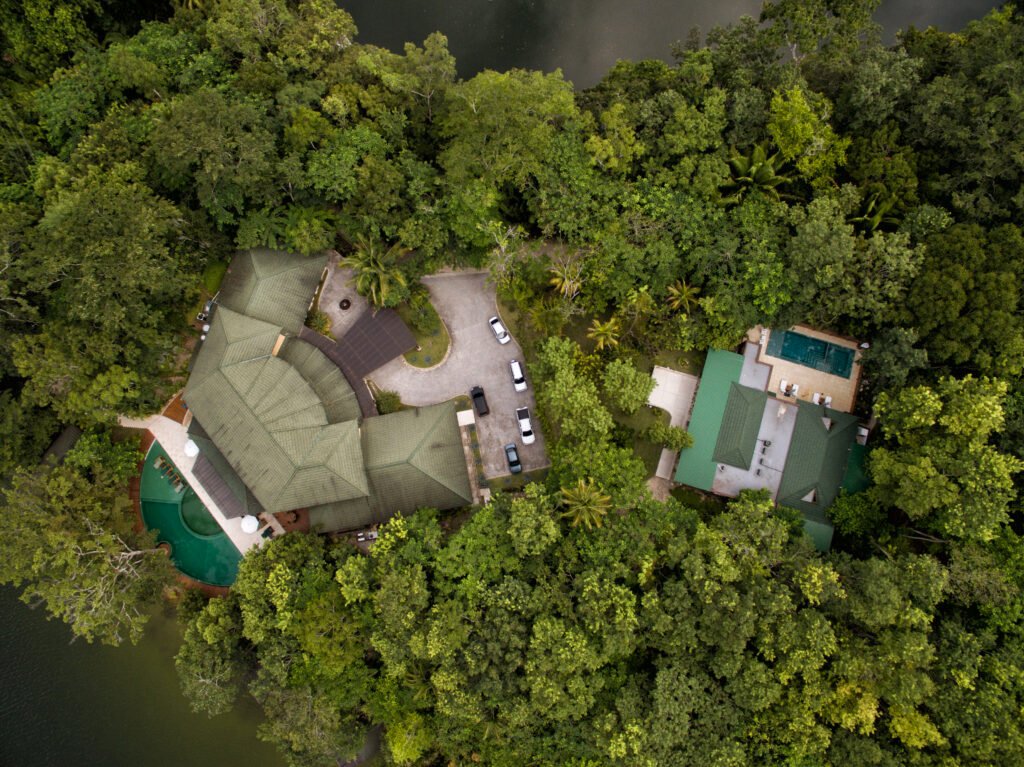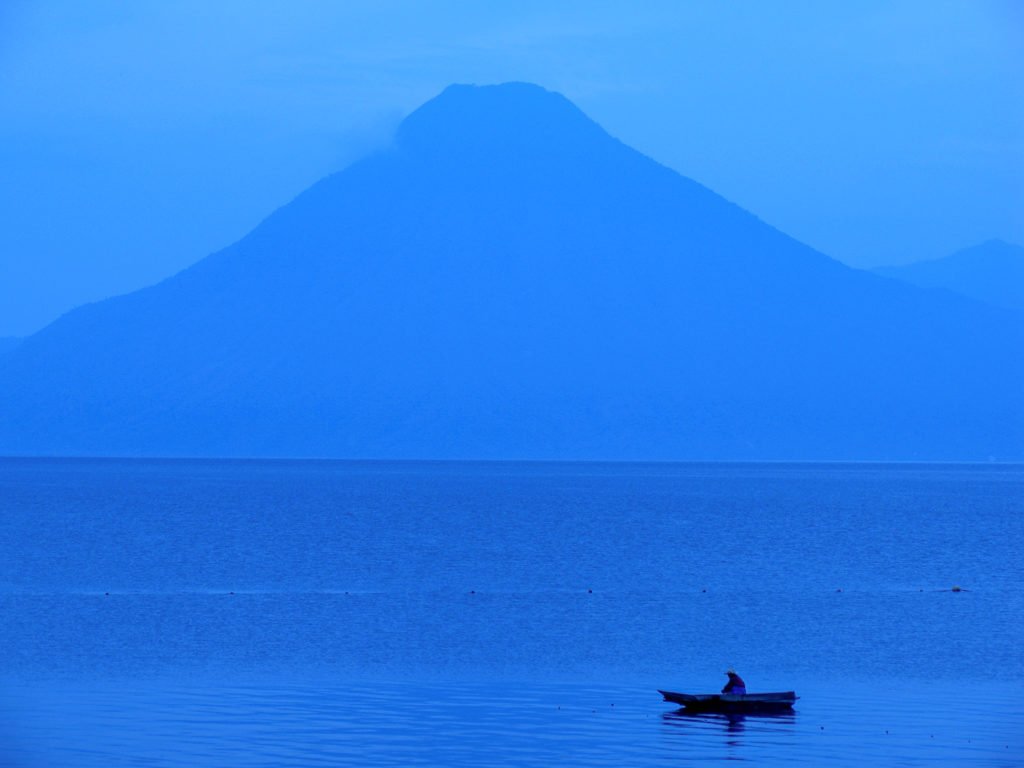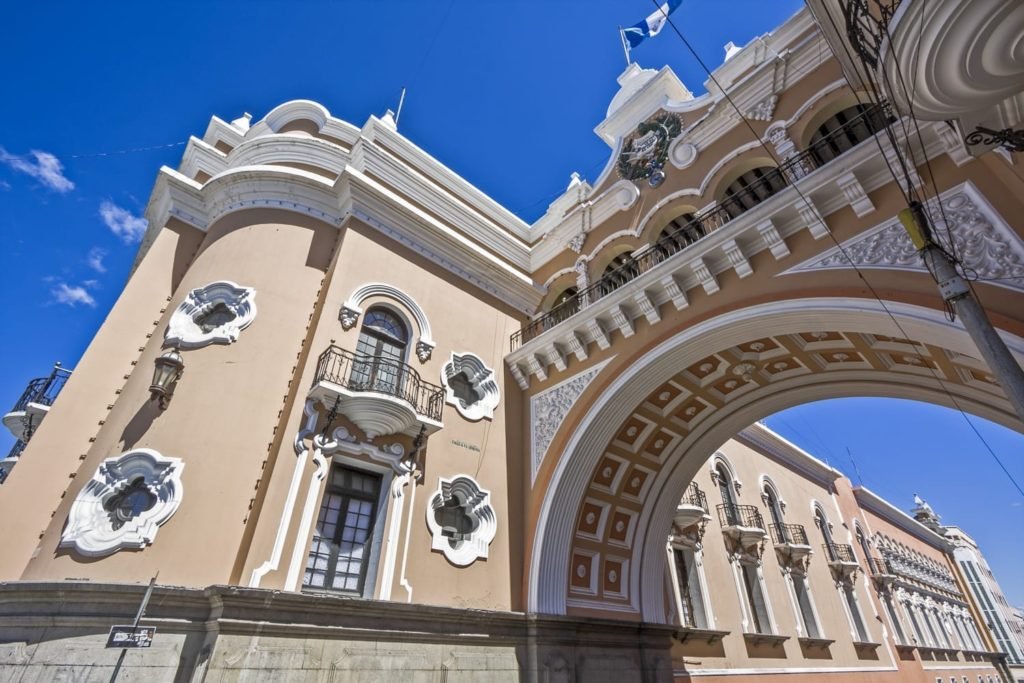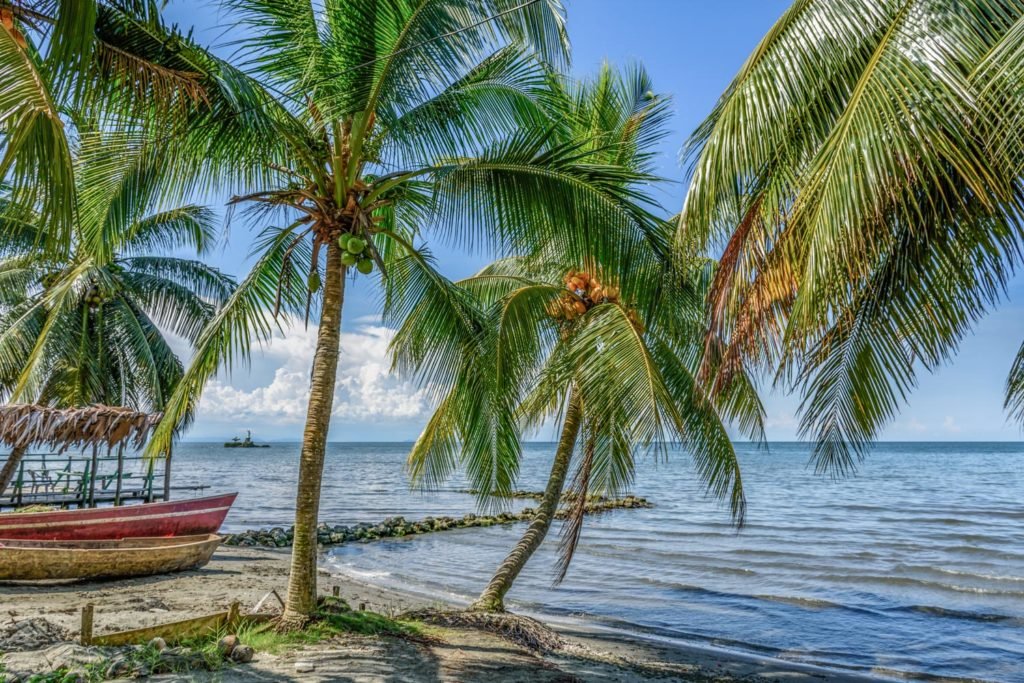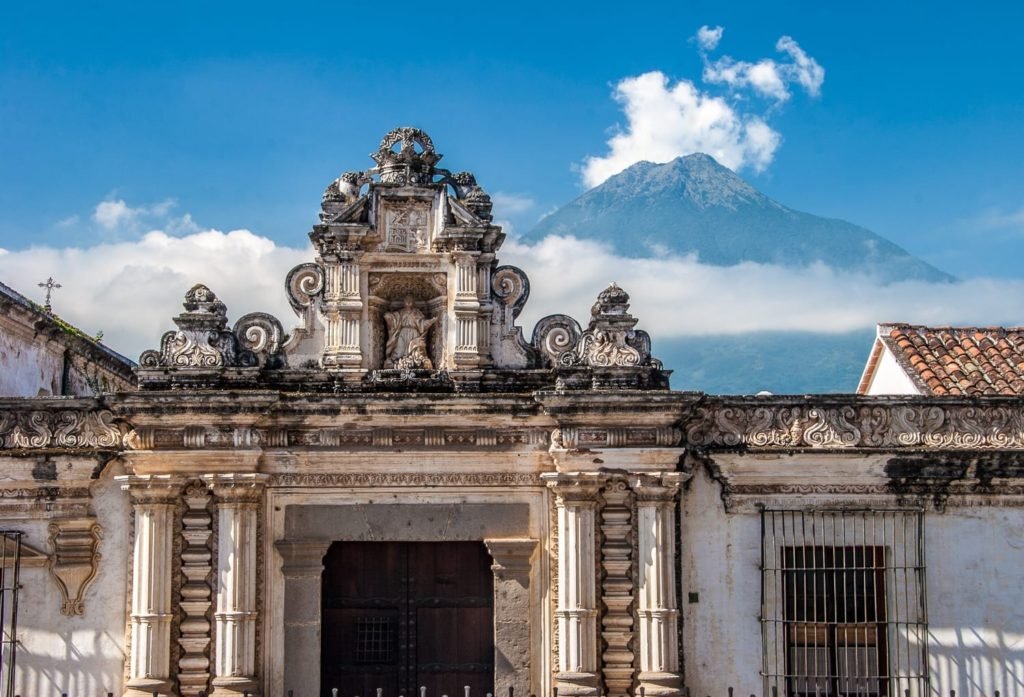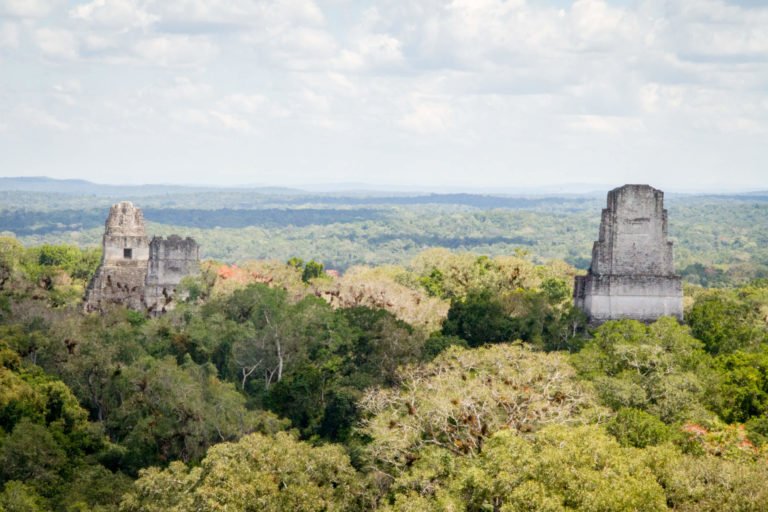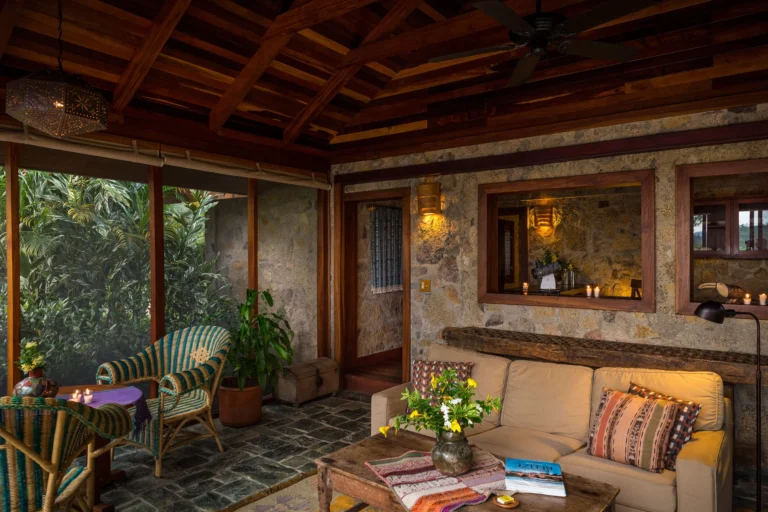Tikal: The Place of Voices
The name Tikal translates to “place of voices” in the language of the local Itza Maya.
While its original name was lost in time, it may have been Yax Mutal—capital of the mighty Mutal kingdom.
Historically, Tikal was a commercial and military superpower, as well as an important ritual center.
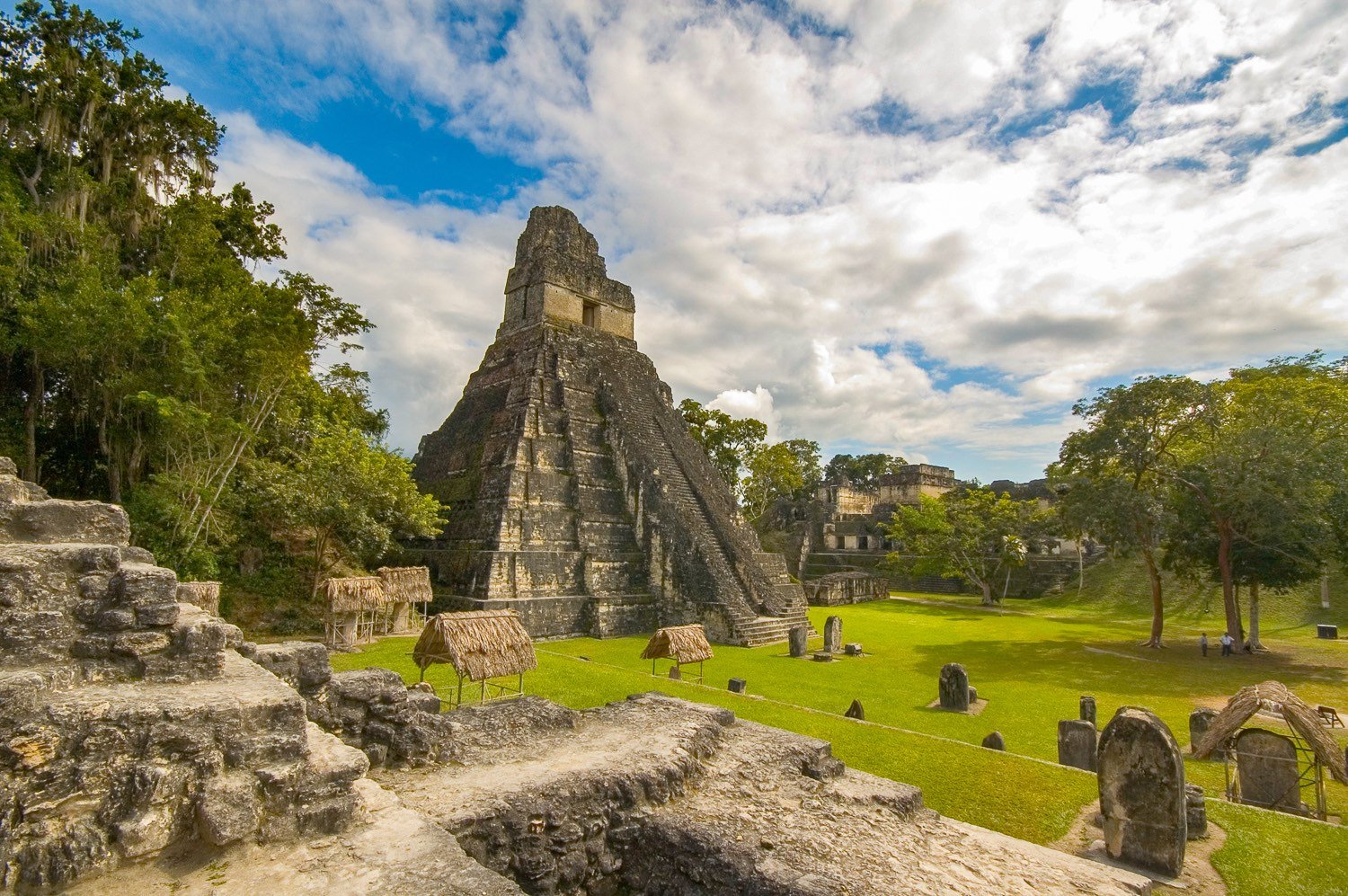
Evidence suggests settlement at Tikal as early as 800 BC.
The city reached its apex during the Maya Classic Period (250 to 900 AD), with an estimated population of 100,000.
Over 3,000 structures have been identified at this site including:
- Temples
- Monumental Stelae
- Ball Courts
- Tombs
- Palaces
The residential area of Tikal is thought to cover 23 square miles.
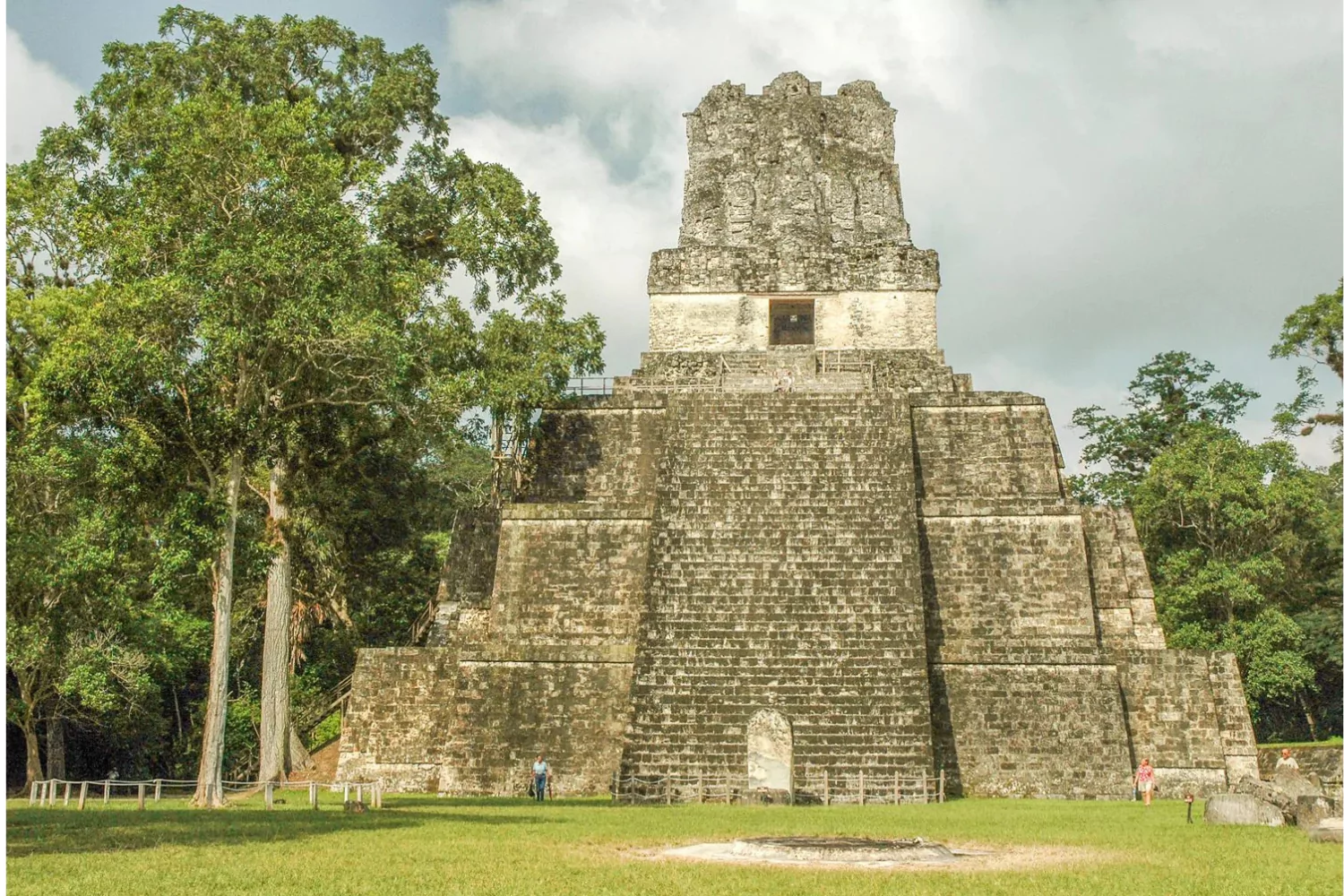
Tikal was defeated by neighboring Caracol (in present-day Belize) in 562 AD, and the city was abandoned in the 10th century.
Although it was never fully lost, the first scientific expedition didn’t arrive until 1848.
UNESCO World Heritage Site
Intensive clearing and restoration began in the 1950s. Today, Tikal is one of the world’s most extensively-restored ancient cities.
UNESCO declared it a World Heritage Site in 1979, describing the area as a “masterpiece of human creative genius”.
Tikal rests on a low hill, surrounded by thick rainforest.
This is an excellent place to view enormous, flat-topped Ceiba (Ceiba pentandra) trees, both sacred to the Maya and symbolic of their cosmology.
What to do in Tikal
Howler monkeys, coatis, parrots, and toucans are common here. Approximately 300 other avian species have been sighted in Tikal, as have jaguars and pumas.
Elevated causeways connect the city’s plaza and temple clusters.
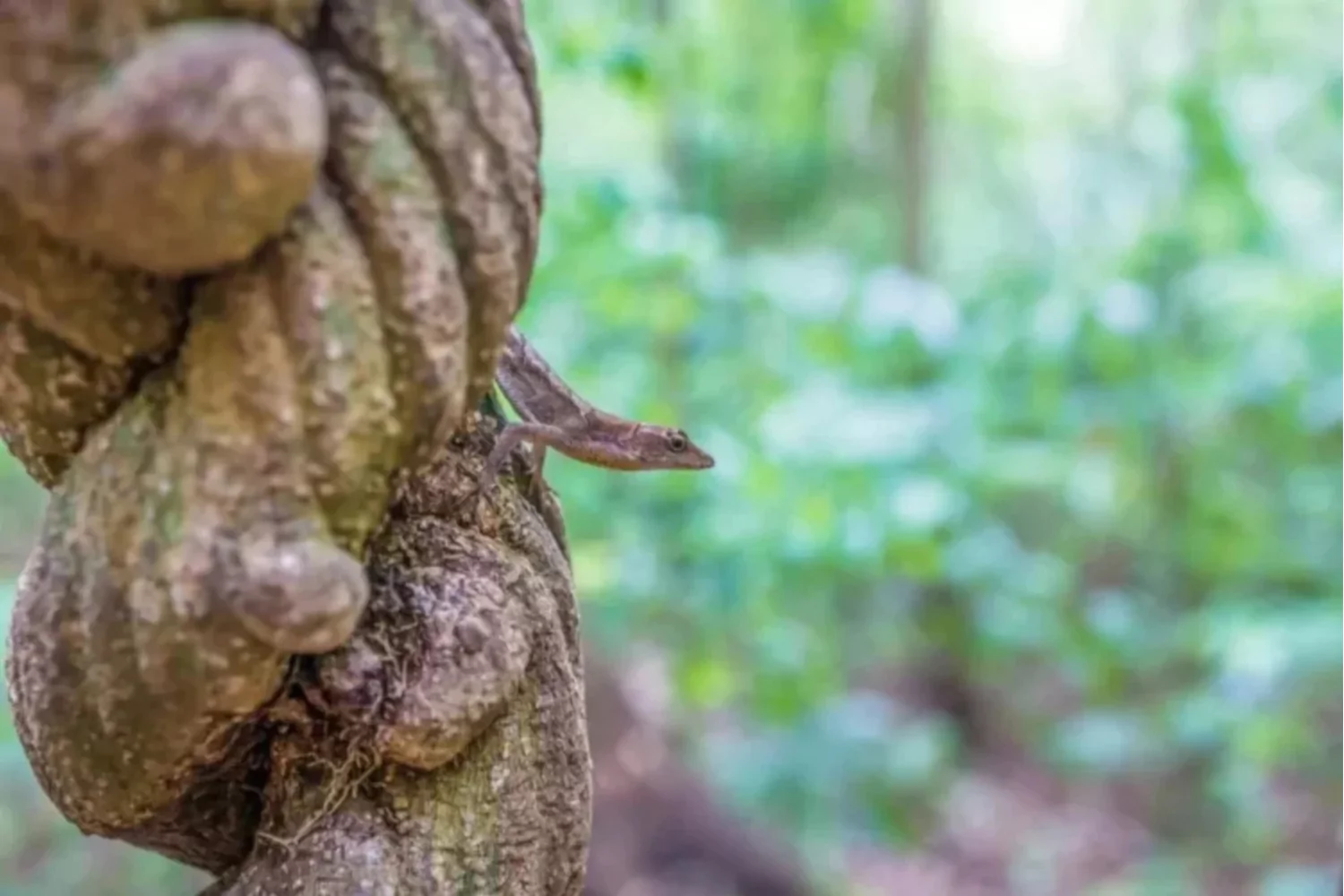
The Great Plaza and Temple I
The city’s cultural heart—The Great Plaza—is flanked by Temple I (Temple of the Grand Jaguar) to the east and Temple II (Moon Temple or Temple of the Masks) to the west.
To the north lies the North Acropolis—an arrangement of eight pyramids, surrounded by tombs and monuments.
On the southern end, the Central Acropolis features six courts, lined with wall-like palaces.
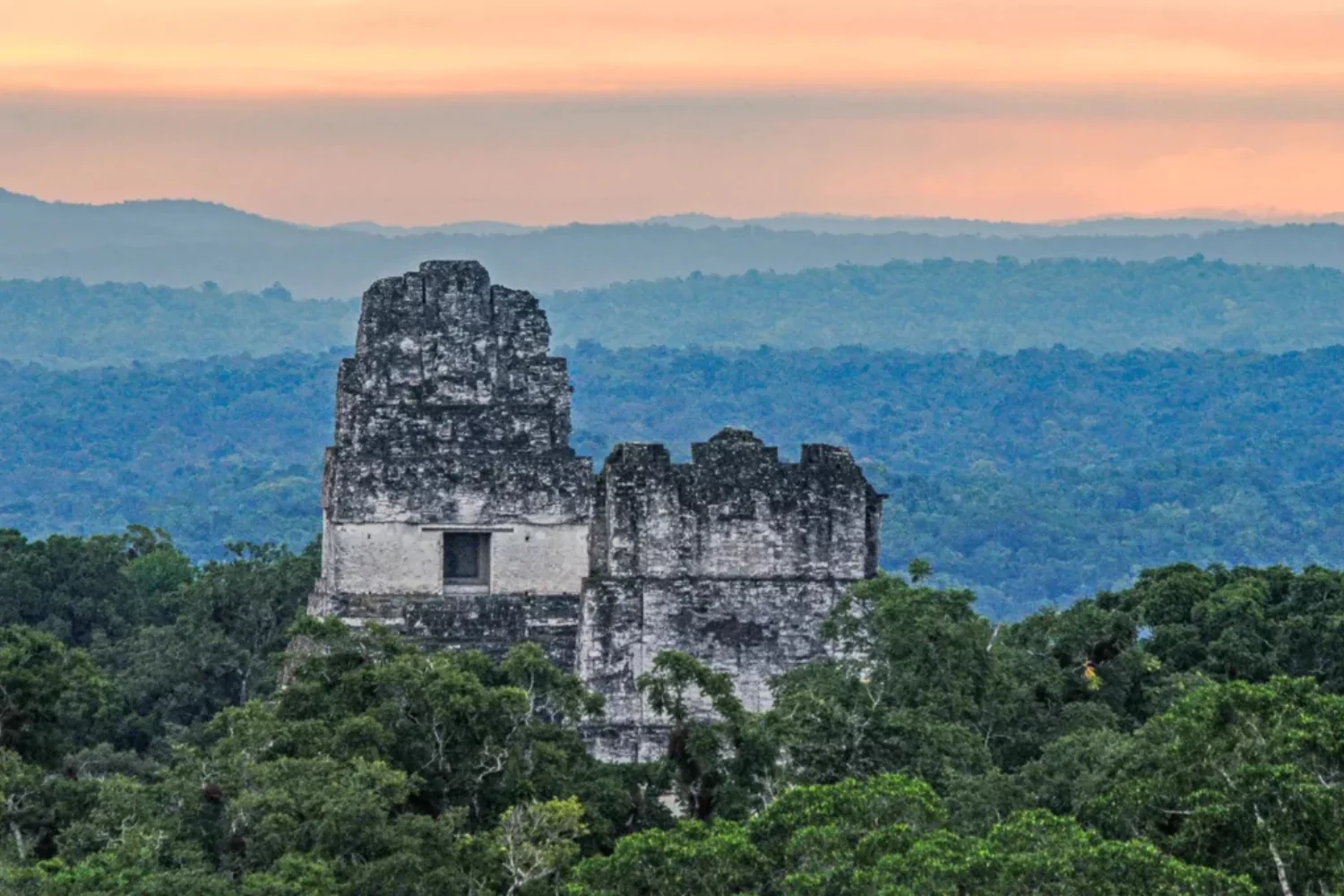
Temple V and Temple III
In the southwest sits Temple V (Lost World Pyramid), surrounded by 38 structures.
Tunnels reveal four other temples nested inside this pyramid, the earliest dating back to 700 BC.
West of the Great Plaza, Temple III remains uncovered, allowing visitors to experience the site as it once was, untouched by the hands of modern man.
Tikal’s highest structure is Temple IV (Temple of the Inscriptions or the Temple of the Two-Headed Serpent), rising 212 feet, and offering excellent views of nearby temples and the surrounding jungle.
This is the tallest pre-Columbian structure in the New World.
What is the Weather Like?
Wet Season (May to November): Tikal has a tropical monsoon climate. Warm temperatures, humidity, and rainfall are a characteristic of this area throughout the year. Humidity averages around 80%. Over the course of the year, the temperature typically varies from 64°F to 95°F and is rarely below 59°F or above 99°F. The rainy season lasts from May to November, with a 30% chance of a given day being a wet day. The rainiest month is September. The hottest month of the year in Flores is May, with an average high of 94°F and low of 73°F. These averages are changing, please check extended weather forecasts using your favorite weather app prior to departure.
Dry Season (December to April): Tikal has a tropical monsoon climate. Warm temperatures, humidity, and rainfall are a characteristic of this area throughout the year. Humidity averages around 80%. Over the course of the year, the temperature typically varies from 64°F to 95°F and is rarely below 59°F or above 99°F. The dry season lasts from December to April. The coldest month of the year in Flores is January, with an average low of 65°F and high of 82°F. These averages are changing, please check extended weather forecasts using your favorite weather app prior to departure.
Getting There
Tikal is located in Guatemala’s northern Peten region, approximately one-hour (40 miles) northeast of Flores.
Fine lakeside lodging is available 20 miles to the south, near the town of El Remate.
Daily flights connect Flores to Guatemala City (50 minutes) and Belize City (45 minutes).
By land, Tikal is around 2.5 hours’ drive from San Ignacio, Belize. The best time to visit is December through May, when rain is less likely.
Start your journey today
LANDED delivers the finest in custom, private travel to Central America, South America, and Antarctica. These regions are our passion; we know them first-hand and by heart. Speak with one of our travel designers and let us create a tailored itinerary for you in Tikal.
How to combine Tikal
Have some extra time? Here are some options for you to combine with.

